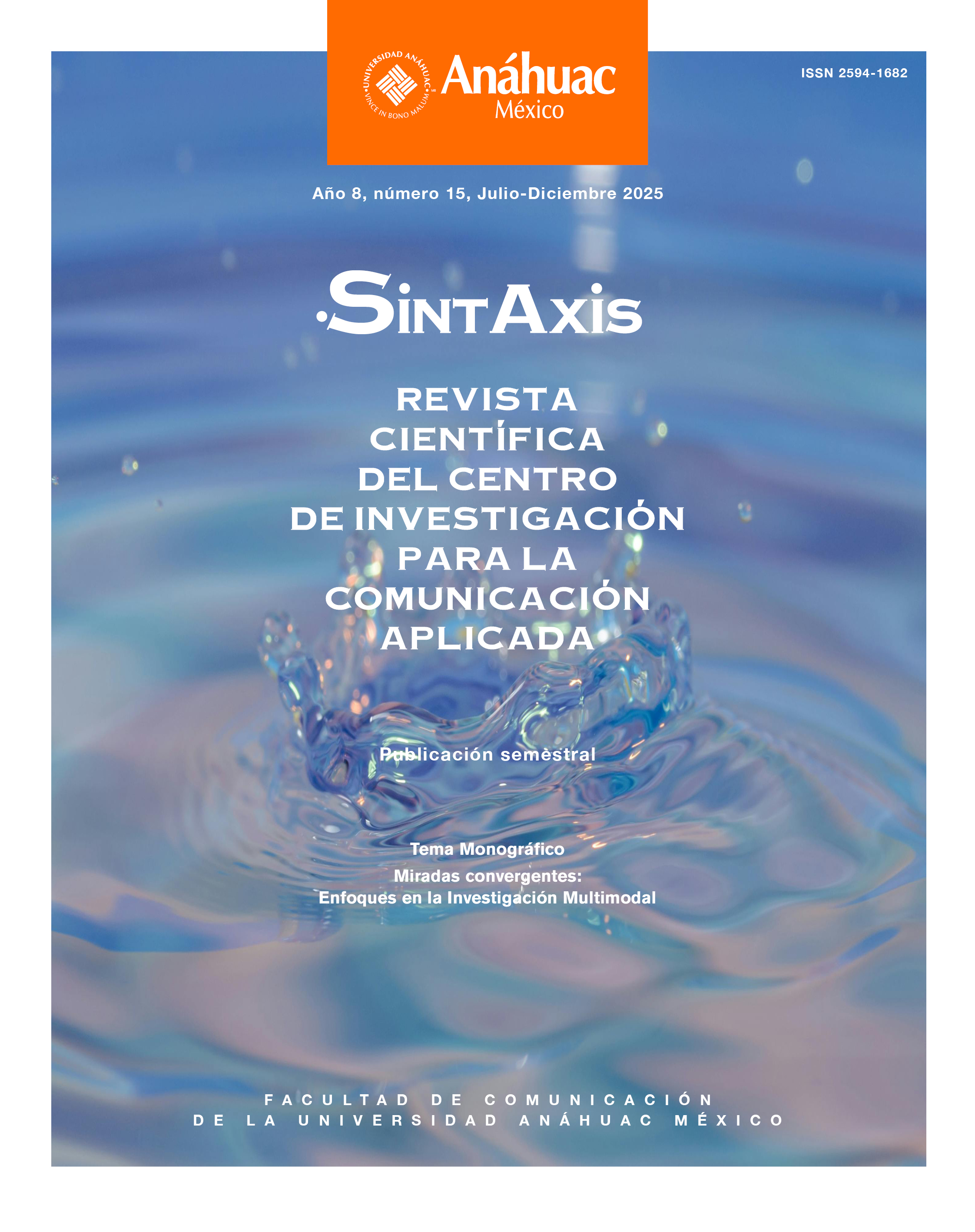Journalists as targets of hate speech: political power, media, and democracy in Mexico
Main Article Content
Abstract
This article analyzes the repercussions of hate speech directed against journalists in Mexico, with a particular focus on the state of Veracruz, which has reported the highest number of journalist murders since the year 2000. From the perspective of the political economy of communication, it examines the discursive strategy of Rocío Nahle García, the current governor of Veracruz, who has prioritized digital platforms and discredited traditional media as part of her official communication. Based on a critical review of studies on hate speech, violence against journalists, and media concentration, the article contextualizes the use of stigmatization as a tool of political confrontation in Latin America. It identifies discursive features that support a polarizing narrative, in which critical journalism is framed as an enemy of power, consistent with the communication model promoted by former president Andrés Manuel López Obrador. The article argues that this strategy not only weakens the legitimacy of the media, but also increases the vulnerability of journalism by legitimizing a hostile environment toward its democratic function. Furthermore, it warns that excluding independent journalism from government communication can undermine public deliberation, open the door to censorship, and fuel disinformation. Key questions are raised about the structural impact of this model on informational freedom and the democratic system in Veracruz.
Downloads
Article Details
Section

This work is licensed under a Creative Commons Attribution-NonCommercial-NoDerivatives 4.0 International License.
The author keeps the property rights with no restriction whatsoever and guarantees the magazine the right to be the first publication of the work. The author is free to deposit the published version in any other medium, such as an institutional archive or on his own website.
How to Cite
References
Abuín-Vences, N., et al. (2022). “Análisis del discurso de odio en función de la ideología: efectos emocionales y cognitivos”. Revista científica de educomunicación, 71(30). https://doi.org/10.3916/C71-2022-03 DOI: https://doi.org/10.3916/C71-2022-03
Artículo 19. (2025). Periodistas asesinados en México en su posible relación con su labor. https://cutt.ly/VeU2lZYc
Batista, J., et al. (2022). “El discurso del odio en la militancia política en red social”. Austral Comunicación, 11(1). https://doi.org/10.26422/aucom.2022.1101.dem DOI: https://doi.org/10.26422/aucom.2022.1101.dem
Becerra, M. (2015). Cazadores de noticias: Dilemas del periodismo en el siglo XXI. Siglo XXI Editores.
Becerra, M., & Waisbord, S. (2021). “La necesidad de repensar la ortodoxia de la libertad de expresión en la comunicación digital”. Revista Desarrollo Económico, 60(232), 295-313. https://revistas.ides.org.ar/desarrollo-economico/article/view/105
Brändle, G. (2024). “Sentir el odio: análisis de la gravedad percibida de los discursos de odio en la población española”. Revista Española de Sociología, 33(2). https://doi.org/10.22325/fes/res.2024.219 DOI: https://doi.org/10.22325/fes/res.2024.219
Busso, G. (2001). “Vulnerabilidad social: nociones e implicancias de políticas para Latinoamérica a inicios del siglo XX”. Seminario Internacional “Las Diferentes Expresiones de la Vulnerabilidad Social en América Latina y el Caribe“. CEPAL y CELADE. https://goo.su/xdZtA
Comisión Nacional de los Derechos Humanos (CNDH). (2022). Informe de actividades. https://informe.cndh.org.mx/menu.aspx?id=23
Consejo Nacional de Evaluación de la Política de Desarrollo en México (CONEVAL). (2022). Informe de pobreza y evaluación. https://cutt.ly/DeUoZg3Q
Fine, G. (1979). “Small groups and culture creation: The idioculture of little league baseball teams”. American Sociological Review, 44(5), 733–745. https://www.jstor.org/stable/2094525 DOI: https://doi.org/10.2307/2094525
Instituto Nacional de Estadística y Geografía (INEGI). (2020). Censo de Población y Vivienda 2020. https://www.inegi.org.mx/programas/ccpv/2020/
Instituto Nacional de Estadística y Geografía (INEGI). (2022). Producto Interno Bruto por entidad federativa. https://cutt.ly/MrckaeYE
Lotter, S. (2022). Sind “vulnerable Gruppen” vor Kritik zu schützen? Praktische Philosophie, 9(2). https://doi.org/10.22613/zfpp/9.2.16 DOI: https://doi.org/10.22613/zfpp/9.2.16
McChesney, R. (2008). The political economy of media: Enduring issues, emerging dilemmas. Monthly Review Press.
McChesney, R. (2015). Desconexión digital: Cómo el capitalismo está poniendo a internet en contra de la democracia. El Viejo Topo.
Mosco, V. (2006). “La economía política de la comunicación: una actualización diez años después”. Cuadernos de Información y Comunicación, 11, 57-79. https://cutt.ly/urckpYXz
Mosco, V. (2009). The political economy of communication. SAGE Publications. https://cutt.ly/Erckp4XW DOI: https://doi.org/10.4135/9781446279946
Márquez, M., y Salazar, G. (2024). La violencia digital contra periodistas en México: Un análisis de la desinformación y el discurso de odio en redes sociales. Universidad Iberoamericana. https://cutt.ly/KrckpZnE
Nahle, R. (2024). Discurso político de la candidata a gobernadora de Veracruz: “La Guerra Sucia”.
YouTube. https://youtu.be/y8E48r_DQdk?si=LdeS9Ezh5iOiGGRE
Nahle, R. (2024). Nombra Rocío Nahle a directores de comunicación institucional.
https://www.rocionahle.com/nombra-rocio-nahle-a-directores-de-comunicacion-institucional/
Organización de las Naciones Unidas para la Educación, la Ciencia y la Cultura (UNESCO). (2024). ¿Qué es el discurso de odio? https://www.unesco.org/es/countering-hate-speech/need-know
Pizarro, R. (2001). La vulnerabilidad social y sus desafíos: una mirada desde América Latina. División de Estadística y Proyecciones Económicas de la CEPAL.
Ramírez, D., et al. (2022). “Odio, polarización social y clase media en Las Mañaneras de López Obrador”. Revista USPCEU, 35. https://doi.org/10.31921/doxacom.n35a1505 DOI: https://doi.org/10.31921/doxacom.n35a1505
Salazar Rebolledo, G., Márquez Ramírez, M., & Echeverría Victoria, M. (2024). “Detrás de las palabras: ¿qué impulsa los discursos de odio contra periodistas en México?” Ponencia presentada en la Safety of Journalists Conference, Oslo Metropolitan University, Oslo, Noruega.
Suprema Corte de Justicia de la Nación (SCJN). (2019). Tesis 118/2019 con número de registro digital 2021226. Gaceta del Seminario Judicial de la Federación, 73(1), 329.
Tilly, C. (2010). Democracia. Akal.
Waisbord, S. (2013). Reinventing professionalism: Journalism and news in global perspective. Polity Press.
Waisbord, S. (2021). El imperio de la comunicación. Gedisa.

